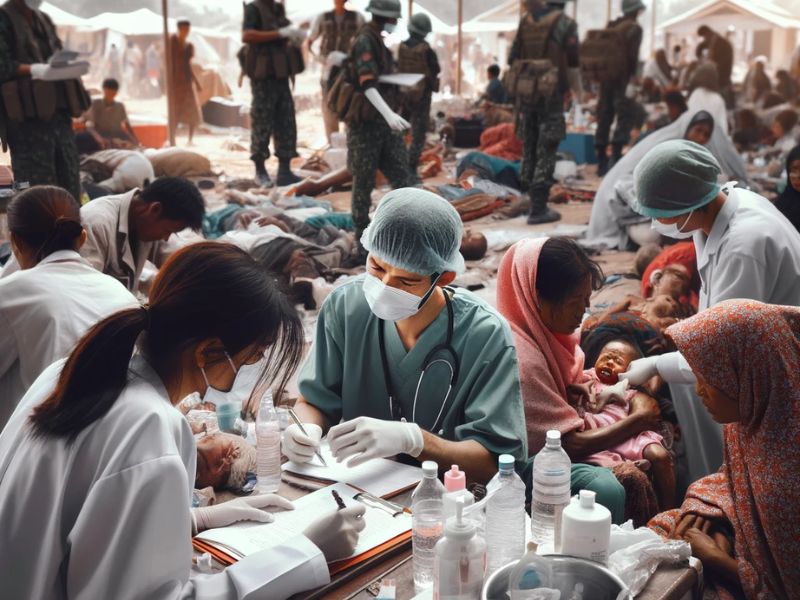
Health Emergencies and Women in Asia: A Growing Challenge
From Maternal Care to Gender-Based Violence, Asia Faces Various Health Challenges
Gender Disparities in Asian Health Emergencies
The Asia-Pacific region stands out as the most disaster-prone region in the world. This has a significant impact on communities, particularly on women and girls. In this region, an increasing number of people have been affected by disasters annually since 1970. Women and girls bear the brunt of the consequences of disasters, losing access to essential sexual and reproductive health services and facing a high risk of unintended pregnancies, gender-based violence, sexually transmitted infections, and maternal mortality.
UNFPA’s Inclusive Approach in Emergency Responses
The United Nations Population Fund (UNFPA) is leading an inclusive approach to address these emergencies. It collaborates with national governments, civil society organizations, and other partners to strengthen the capacity of institutions and communities. Their actions aim to ensure that life-saving services and supplies are accessible to affected populations. An example is Raihana Bibi in Pakistan, who benefited from the timely intervention of a mobile health team during childbirth, saving her and her baby.
Gender-Based Violence and Healthcare in Communities
In Timor-Leste, Alcina, the head of a community health center, is working to build trust between health centers and survivors of gender-based violence. The main challenge is women’s reluctance to report domestic violence, often exacerbated by economic factors. Collaboration between health, judicial, and social services is essential to provide effective support. Alcina and her colleagues’ work is crucial to improving women’s access to care services while ensuring the privacy and dignity of victims.
Strategies for the Future and Sustainability
Expanding access to psychosocial services and safe houses, especially outside urban areas, is crucial. Alcina emphasizes the importance of private spaces for consultations with survivors of violence, a practice that takes time to implement but can lead to significant changes in how women experience healthcare services. These efforts, combined with ongoing support and training, are essential for lasting and meaningful change.


